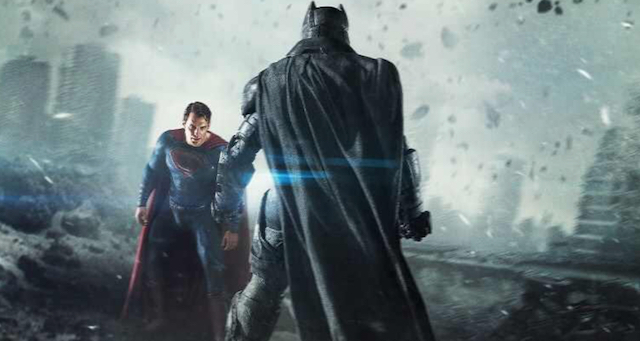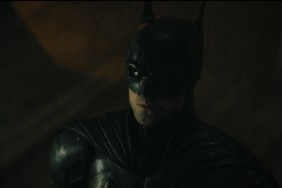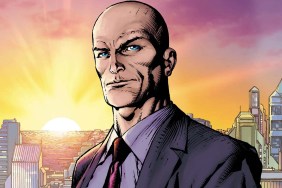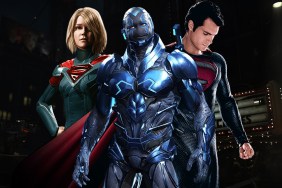I’ve been playing videogames for pretty much as long as I’ve been watching movies. Shortly after seeing Batman v Superman: Dawn of Justice, it occurred to me that games demonstrate how different mediums have different strengths and weaknesses. You really can’t get into the mind of a lead character like you can in a novel, but conversely, experiencing a world in an interactive environment is better in than any collection of words could ever be.
Naturally, movies and television are where we go for plot and characters. But what if we didn’t? My appreciation for film changed ever since I began a love for art-house cinema. The trick, I suppose, is to recognize the intention of the artist, even if that person is directing a reportedly $250 million blockbuster. So loving or hating the latest DC comic book adventure hinges on that: Do you just want a fun, engaging superhero movie, or are you able to put up with a lack of story and characters for something else entirely? There a lot of problems with BvS, but ambition and ideas are not one of them.
Nearly a decade after Marvel began its cinematic universe with a two-minute Easter egg at the end of Iron Man, DC by way of Warner Bros. is (finally) delivering 75 times that this Easter weekend with a backdoor pilot of sorts for their upcoming Justice League movie. Fans have been eager to see if the result of such a big mash-up between the two iconic superheroes could really work since the film was announced over two years ago. This can’t be a trashy guilty pleasure like Freddy vs. Jason. DC had to go big or go home. My best advice is to remember that not every comic book movie has to be like a Marvel one.
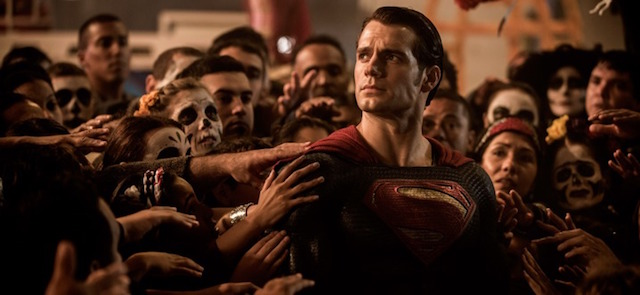
I say that as warning, and as a partial fan of director Zack Snyder (Sucker Punch). For all the ways he can come up short, he definitely has a painter’s eye for visuals. This film is filled with countless moments that engaged my mind and eyes, tiny observations about mankind that left me in awe of that god that walks among us: Superman. A wordless montage focuses on a crowd dressed up for the Day of the Dead in Mexico City. This moment both grounds the film in impressionistic imagery while at the same time connects us to a being who, with each passing moment, feels tethered to the human experience.
After the events of Man of Steel left downtown Metropolis in ruins, a U.S. senator (Holly Hunter) lobbies against the planet’s mightiest hero insisting that he be held accountable to Earth’s inhabitants; for example, an employee of Wayne Enterprises who lost his legs as a result of that attack or the little girl who lost her mom and dad. Bruce Wayne knows a thing or two about bring orphaned at a young age, so while none of this is really Superman’s fault, it's just not how Wayne sees it.
Blinded by rage, and his own feeling of inadequacy, The Bat has it out for him. After a quick, mostly useless retelling of Wayne’s origin in the credits, BvS begins with Bruce experiencing the destruction of Metropolis not from the sky, but at ground level. Seeing how removed Superman is to the destruction is a nice nod to the criticism that that film’s finale garnered. The bigger question lingers: What do to with this seemingly unstoppable force?
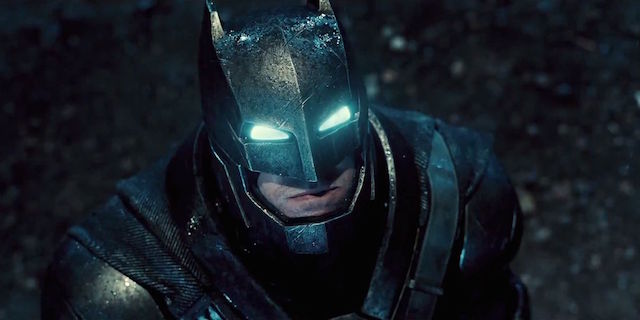
Much of the first hour is terrific as Wayne’s obsession with the son of Krypton reveals how mean and cruel this version of the Dark Knight has become. (He seems to kill criminals at will, even branding some with a bat icon.) At 43, Ben Affleck is the oldest actor to don the cowl, and while I still think he needed to be a tad older, the actor sells it. To be honest, I had grown tired of the caped crusader of late, so positioning Mr. Wayne as the lead and the film’s antagonist is a brilliant stroke that feels right for the world we live in now. Do we actually believe a rogue billionaire can solve our problems? (I guess we’ll find out in November.)
Elsewhere most of the bits with Clark, Lois (Amy Adams), and Perry White (Lawrence Fishburne) feel like the Man of Steel sequel we didn’t really get. Henry Cavill remains the most stoic Superman of all time, but with regard to how the civilians of Metropolis seem to question his every move, it’s not hard to understand why his view on truth, justice, and the American way is more conflicted than ever.
DC’s heroes are older than Marvel’s, and explains in part why they’ve never really been very layered. Snyder knows this, and uses big images like Superman looking down on us from above to make us feel the weight of these Big Idea Beings. Marvel movies offer superheroes that are relatable while the hard part for DC has been an utter lack of relatability. On the small screen Supergirl and The Flash fare much better in this way, but the big screen is quite suitable for these larger-than-life heroes—if you can go with it—so I’m okay with what amounts to thin characterization as a stand-in for our own hopes and fears.
The closest we have to someone to root for is Diana Prince, aka Wonder Woman ,played by Gal Gadot (Furious 7). She might only have a few scenes, but she makes a very strong impression. I can’t wait to see her solo feature next year. Her run-ins with Bruce also reveals Wayne as an old school chauvinist, which is interesting. In fact, while the film is not overtly sexual, there is an element of more adult-minded attractiveness that permeates. Snyder has always been a fetishist filmmaker (see also: Sucker Punch, Watchmen, and the unintentionally bromance epic 300).
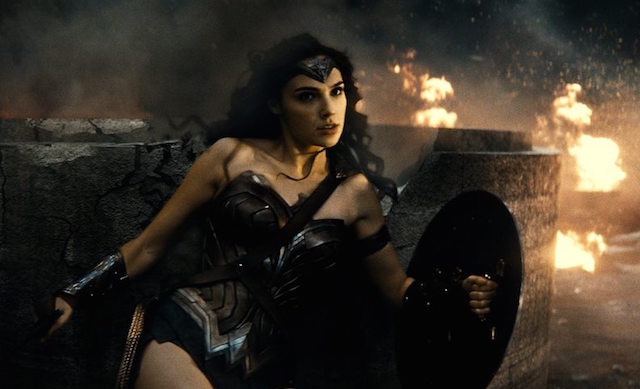
Elsewhere, it might be time to admit that the real weak link in the recent DC flicks are the villains. Post Heath Ledger’s revolutionary take as the Clown Prince of Gotham in The Dark Knight (2008), the rest have been a washout. What’s more depressing is that they’ve all been played such good actors: Michael Shannon (Zod), Tom Hardy (Bane), and now Jesse Eisenberg. All of them indulge too quickly into “obviously the bad guy” territory. This film’s version of Luthor (his dad was Lex, he is Alexander) is more like a cheap methhead Joker than the charming, scheming, brilliant Luthor in other iterations. Strange since Luthor is already another larger-than-life character there was no need to play him with an awkward bordering on offensive Asperger slant. As much as I find myself defending BvS from the haters, I can’t really get on board with the villain. At all. At best he’s just a plot contrivance to keep things moving; at worst, well, I can see why Batman wants to punch him.
I haven’t said much about the story since there isn’t really one. This is where Snyder penchant for gorgeously realized sequences reveal a lack of momentum. Nothing really builds. Sometimes watching BvS is like watching a trailer for it. By the third act, some plot threads are linked up to justify the big showdown between two people that really should never have fought in the first place. Suddenly, all those grand ideas come to a halt for a soap opera-level misunderstanding and rather generic fight scenes. Worse, save for Wonder Woman, the climatic battle is just as CG-dizzying as the one in Man of Steel. Better are the smaller moments that, even on a giant IMAX screen, somehow doesn't fall under the weight of the film’s pretensions.
That’s what makes being a fan of Snyder annoying sometimes. He can, in all seriousness, explore ideas of civil liberties, corporate fraud, and the cost to the ordinary civilians, but in the end, the story comes down to a goofy creature that looks like an Orc that must be destroyed with no discernable personality traits. For most of my time with Dawn of Justice, I was engaged in a way few blockbusters do anymore, the scale is off the charts, and plenty of ideas rattled my brain, but… eventually even Superman—and by extension the film—needs to come down to Earth.

